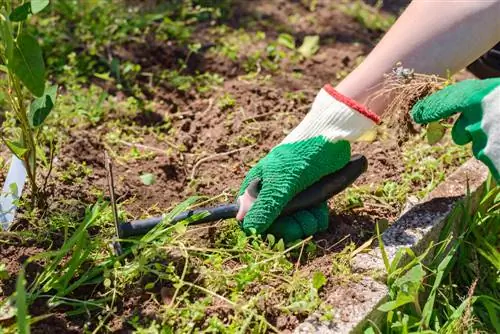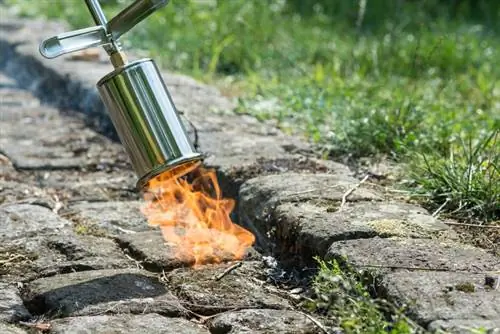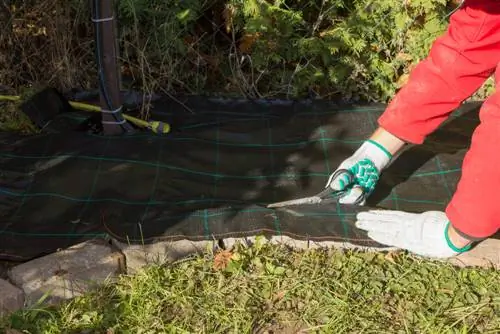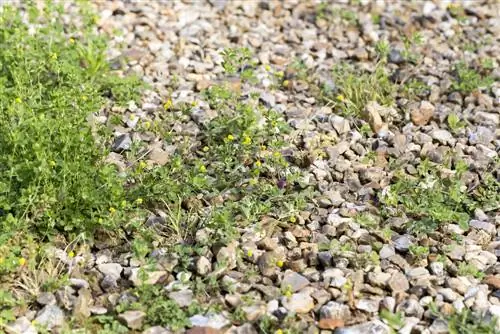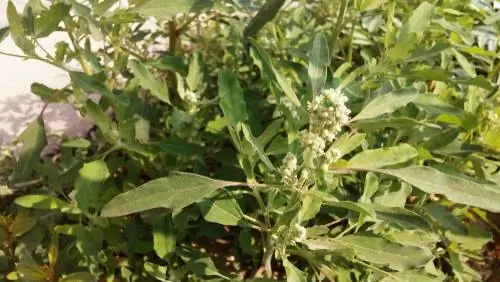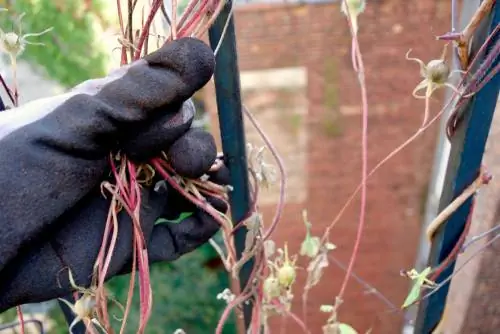- Author admin leonars@hobbygardeners.com.
- Public 2023-12-16 16:46.
- Last modified 2025-01-23 11:21.
An old saying that is not only used by gardeners says: “No cure has yet grown against it!”. In fact, there is no panacea against unwanted growth in the garden bed, especially since weeds are often very tough and vigorous. No matter how many times you try to pull them out, dig them up, or use other means to attack them, they always come back.
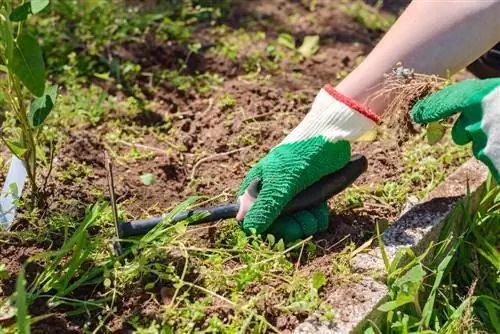
How can you successfully remove weeds in the bed?
To effectively combat weeds in the bed, you should weed regularly, dig up and loosen the soil, and avoid open spaces in the bed by covering them with mulch, stones or weed fleece. Some weed species can even be used as edible wild herbs.
The best tips for a weed-free bed
There are two main reasons for the persistence of weeds: Flowering weeds produce a large number of seeds very quickly, which are distributed in the environment by the wind, for example, and sometimes remain capable of germinating for years. Other species - such as ground greed - develop extremely long roots that form real networks underground. If you tear these out, new plants can form from even the smallest remnants. By the way, this is also the reason why root weeds, as well as those that go to seed, definitely do not belong in the compost.
Weeding, weeding and weeding again
The best remedy against weeds is and remains regular weeding, which should always be done in good time before the seeds ripen. Even if this seems very tedious, thanks to new garden tools you no longer have to kneel on the ground. Weed pullers (€54.00 at Amazon) or removers with long handles make this work much easier. In addition, regular weeding has several pleasant side effects: Not only do you save yourself the expensive gym, over time the weed pressure decreases on its own. Frequent weeding weakens the unwanted weed so that it appears less and less frequently.
Digging and loosening the soil regularly
Root weeds in particular can only be kept in check by frequently digging and loosening the soil (e.g. with a hoe). When digging deeply, make sure to remove as many roots as possible. You should also use a digging fork instead of a spade, as the roots can be divided more sustainably with this tool.
Don't leave any open spaces in the bed
In nature there are no free, unvegetated areas. Bare soil always becomes overgrown within a very short time, which is why you can keep weeds away by not leaving any open spaces in the bed. Cover the spaces between the cultivated plants with stones (e.g. pebbles), gravel or other mulching material (e.g. bark mulch, grass clippings). Weed control also does a very good job.
Tip
Strictly speaking, there are actually no “weeds”, instead the wild growth in the bed is often edible wild herbs with he althy ingredients. You can pluck out gooseweed, chickweed, sorrel, purslane and the like - and then enjoy eating it as tea, salad or soup.

